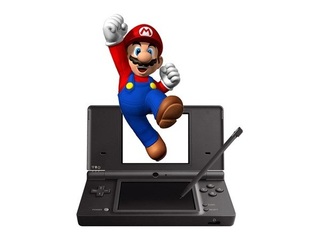
Report finds that children not more active with Wii
Exercise games make children less active in other areas

When the Wii was first introduced, it was hailed as the next step in video gaming. Now children would not sit on their butts clicking a controller, they would have to get up and actually move. Exercise was going to be fun and maybe, just maybe, we would be able to solve the obesity epidemic after all.
Unfortunately, that seems to have all been a pipe dream.
A study from the Children’s Nutrition Research Center at Baylor College of Medicine in Houston earlier this year diffused the notion that exergames, as they are called, do not make children more active.
84 children, aged 9 to 12, were monitored (though six of the children were later dropped for various reasons), for five out of a total of 13 weeks. Each child had a body mass index between the 50 and 99 percentiles. All of them were given a Wii with active games; half were given a choice between choosing an active or inactive game to see if those children that were given a choice had extra incentive to be active.
The active games provided were: Active Life: Extreme Challenge; EA Sports Active; Dance Dance Revolution; Wii Fit Plus; and Wii Sports. The inactive games were Disney Sing It: Pop Hits; Madden NFL 10; Mario Kart Wii; New Super Mario Bro.s Wii; and Super Mario Galaxy.
The point of the study was to find out “whether children receiving a new (to them) active video game spontaneously engage in more physical activity than those receiving an inactive video game, and whether the effect would be greater among children in unsafe neighborhoods, who might not be allowed to play outside.”
The result: “There was no evidence that children receiving the active video games were more active in general, or at anytime, than children receiving the inactive video games.”
“Although children can do moderate or vigorous PA with active video games in laboratory settings, they either did not elect to play the provided games at that level of intensity, or compensated for the increased intensity by being less active at other times in the day.”
Essentially, the study found that if the children played more active videogames, they simply became less active in other areas, leading to no overall benefit.
History of Wii
The Wii was first introduced in 2006, and was immediately seen as a giant leap forward for video games; one that would finally motivate kids to get off the couch.
The system was a big success, selling over 600,000 consoles in its first eight days. It became the worldwide leader in sales less than a year after being released. At the time, Nintendo stock was worth $56.85. It would hit a hit of $78.50 in October 2007.
Wii sales have recently stalled, though, with handhelds outpacing sales in 2011. Nintendo stock has tumbled as well, ending at $14.75 on Friday. In January, the company projected its first annual loss in 30 years.
Reports bursting the bubble of Wii’s largest selling point may the last thing Nintendo wants to hear now.
(Image source: elmundotech.wordpress.com)
Related News


Netflix streaming on the way to your Wii

